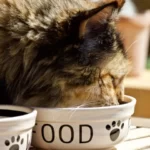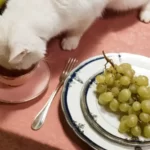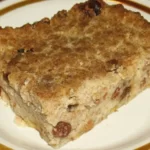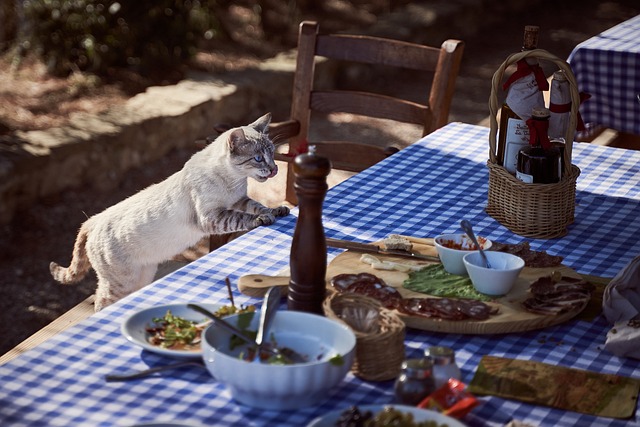
The average cat can technically survive for one to two weeks without food if they have a water supply. Even if they have enough water, without protein, it may only be three to four days. A cat wouldn’t likely survive more than three days without access to food or water.
It is important to emphasise that when it comes to cat health, a cat that has had no food for as little as two days can become malnourished and unwell and may even need urgent veterinary care. For happiness and health, all cats require a steady supply of fresh water and food.
You’re leaving for a brief overnight trip, and if everything goes well, you’ll return the following day. Can you really leave your cat alone for that long? and other intriguing questions arise from this. Cats can fast for how long?
Table of Contents
Why is My Cat Not Eating? Answered
There are many causes for your cat’s sudden lack of appetite or inability to eat. Understanding the cause of the change in eating habits will be easier for your vet to diagnose if you pay attention to unusual behavior or other symptoms.
Digestive Issues
“If a cat is experiencing any type of gastrointestinal distress like nausea, vomiting, diarrhea, or abdominal discomfort, they may be reluctant to eat or drink,” Unfortunately, a lack of food and water is probably going to make things worse, says Dr. Carmella.
Sadness and Depression
Our canine companions can experience the blues just like humans. According to resident cat expert Mikel Delgado Rover on The Dog People Panel, sadness and depression in cats can manifest as a variety of symptoms. Your cat may be suffering from depression if they abruptly stop eating and rejecting their favorite treats.
Travel
“You should always check with your veterinarian about whether it is safe for your individual cat to travel,” Dr. Delgado Any routine change can be stressful, which can lead to a drop in appetite, illness, and other stress-related conditions. Motion sickness from the car’s motion alone can result in momentary nausea and appetite loss.
Anxiety
Each cat has a unique way of displaying anxiety. Some cats may become more reserved than usual, stiff in their movements, and silent. Others become more talkative, over-groom, or change their appetites and eating patterns.
Foreign Objects
Overproduction of hairballs and other foreign objects, such as string, can clog your cat’s digestive system. “If you think your cat has swallowed a foreign object or has lost their appetite, is vomiting, or appears to be in pain, contact your veterinarian right away,” Dr. Delgado says.
Dental Diseases
If your cat has lost their appetite and it is accompanied by excessive drooling, bleps, discomfort while eating, or bad breath (which can be treated by brushing your cat’s teeth), they may need to visit the cat dentist. Cats frequently suffer from gingivitis, toothaches, and broken teeth.
Food Allergies
Without the assistance of your trusted veterinarian, it can be difficult to identify food allergies, according to Rebecca Greenstein, Rover Dog People panelist and Chief Veterinarian at Kleinburg Veterinary Hospital. “If you notice unusual symptoms like lack of appetite, skin issues, or tummy upset, and they happen within several weeks of a diet change or the introduction of a new treat, it could be suggestive of an underlying dietary allergy,” she says.
Respiratory Problems
For felines who rely on their keen sense of smell to pique their appetite, a stuffy nose is no fun. Lower appetite is one of the many symptoms that respiratory illnesses can have.
Pickiness
“Cats can be very finicky eaters,” Director of Veterinary Scientific Affairs at Blue Buffalo, Victoria Carmella, DVM, says. Your cat might skip a meal if something about the taste, texture, or smell of food bothers them. It’s time to see the vet if 24 hours of feeding your cat a variety of its favorite foods doesn’t stimulate a normal appetite.
Medications Or Vaccinations
Vaccines and medications may have adverse effects, including appetite loss, despite their importance. Side effects ought to be minor and transient; however, if they persist for more than a day or two, speak with your veterinarian.
Underlying Health Condition
Why your cat stopped eating all of a sudden is difficult to comprehend. Only your veterinarian can occasionally identify the true cause in some cases. Laura Robinson, DVM, consulting vet for Canidae Pet Food, says some possible medical issues resulting in loss of appetite and weight loss include:
- Kidney disease
- Hyperthyroidism
- Liver issues
- Diabetes
- Pancreatitis
- Parasites
- Cancer
What Happens If My Cat Doesn’t Eat?
Nutrients are essential for a cat’s survival and are obtained through food and water. Hepatic lipidosis, a liver condition that can be fatal if left untreated, can be brought on by cats ceasing to eat or by them being unable to find food containing enough protein. This process can occur very quickly in cats because their livers cannot support their bodies in the same way that those of dogs and humans can. The cat’s organs will begin to shut down with continued starvation.
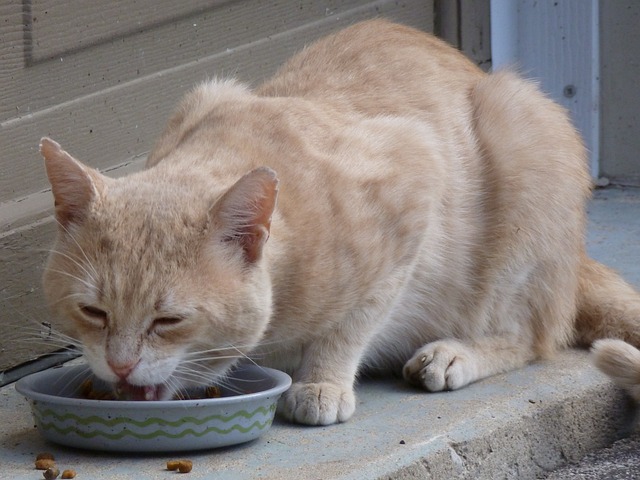
How to Get My Cat to Eat?
Before making a doctor’s appointment, try some at-home tricks if you notice that your cat is eating less food than usual or not at all. Try a different flavor if your cat eats canned food, or try lightly warming the food before serving.
Depending on the texture or consistency of the food, some cats can be very picky. A picky eater may be persuaded to change from a minced product to a pate, or vice versa.
There are many different types and dimensions of dry foods. A switch to a different kind of kibble might be beneficial. When a cat is willing and you feel at ease, you can frequently increase their appetite by gently opening their mouth and placing a small amount of food on their tongue.
Make a proactive decision and schedule a visit to the vet if these measures fail or your cat exhibits other worrying symptoms. The longer it takes for your cat to recover from malnutrition and dehydration, the more compromised it will become.
Alone for the Day?
Different personalities and levels of independence can be found in every cat. While some cats might find it difficult to be away from their owners for an extended period of time, others might be more understanding and amusing to themselves. This should be taken into account when determining whether you can leave your cat alone or if you need to have someone check on him a few times throughout the day.
Let’s focus on feeding in particular. It should be possible to put food out before you leave and replenish it 24 hours later if your cat eats free-choice dry (kibble) food. Like you, your cat needs to eat every day, but many cats should be fine with this arrangement since it allows for short overnight trips. The meal cannot be left out (not refrigerated) for an extended period of time if your pet is on a wet food diet. If he’s used to only having one meal a day, you could feed him just before you leave and right when you get home.
What if your trip doesn’t exactly go as you had hoped? Let’s say that because of the delay, you can’t make it back as soon as you anticipated. Kibble for your cat will either run out or become stale. It’s simply risky to leave a pet alone for an extended period of time. Plan a backup strategy in advance, at the very least. If necessary, make arrangements for a friend or relative to act as the on-call pet sitter. Considering bringing your cat along is another option.
Adult cats should not be left without fresh food for very long under normal circumstances, as they need to eat every day1.
The Dangers of Sudden Weight Loss in Cats
It is advised to have your cat examined by a veterinarian if, for no apparent reason, it stops eating for between 24 and 36 hours despite normal water consumption. If a cat is completely or partially anorectic for a few days or weeks, serious and even life-threatening issues may arise.
For overweight cats, the consequences of a poor appetite and a subsequent body weight loss of at least 30% are particularly dangerous. If they don’t consume enough calories, obese cats start to use their fat reserves as a source of energy, which causes fat to infiltrate their liver. If the liver cells are unable to clear the extra fatty deposits, hepatic lipidosis and liver failure will occur.
Compared to omnivores like humans and dogs, cats are obligate carnivores, so protein intake is crucial. Hepatic lipidosis is made worse by a protracted reduction in protein intake.
Some diseases, like diabetes mellitus, make people more likely to want to drink and can give pet owners a false sense of security.
How Long Should You Wait to See Your Vet?
Depending on your particular cat, you should decide how long to wait before taking it to the vet. Understanding the distinctive behaviors of your cat is essential. It’s not uncommon for some cats, who are known to be picky, to skip one or two meals. Other cats might have a tendency to eat less after sporadic vomiting episodes brought on by hairballs, plant ingestion, or other mysterious causes.
Cats with persistent upper respiratory problems frequently experience episodes of decreased appetite due to nasal congestion. Since it is common for cats to occasionally skip meals, pet parents of cats who exhibit some of the aforementioned tendencies are more likely to put off scheduling a vet visit.
RELATED ARTICLE: How Long Can A Dog Go Without Eating?

